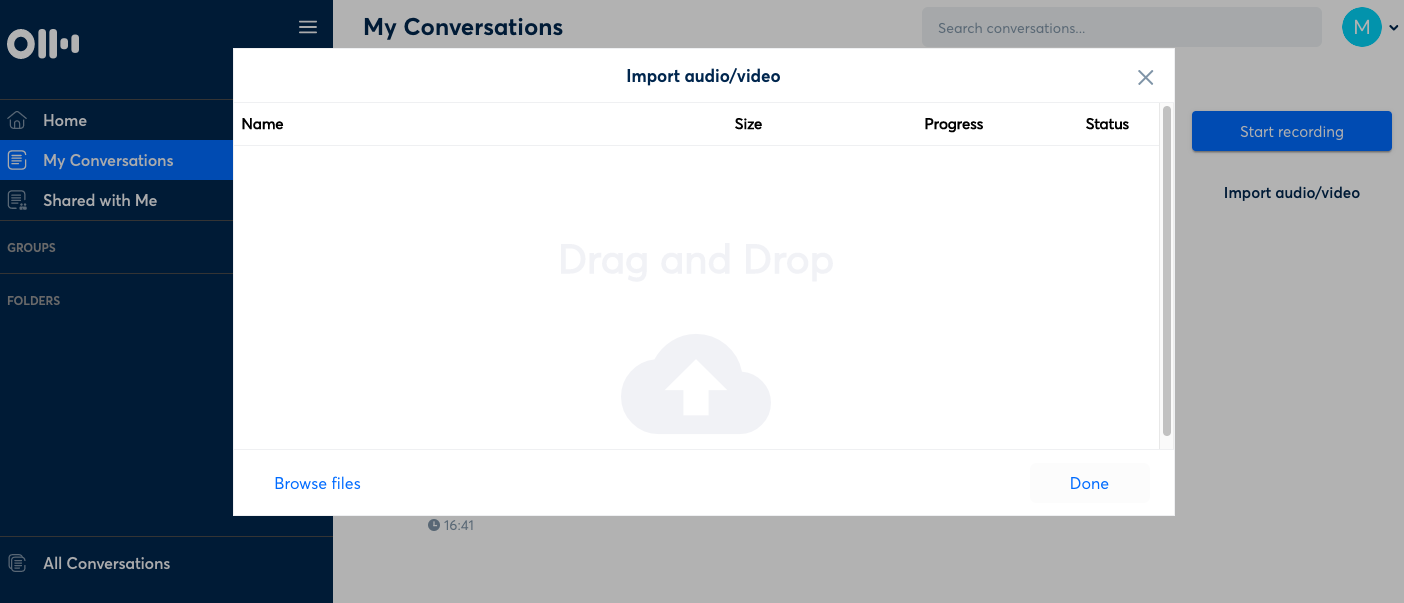You should, at this point, be taking the safety precautions recommended by the World Health Organization (WHO).
Many federal governments are stepping up with policies to protect their workers from the certain economic impacts of widespread self-isolation.
In Italy, one of the hardest-hit areas to date, the government negotiated an accord with banks for the suspension of mortgage payments, for example.
And in Canada, where I live, the waiting period for unemployment benefits has been eliminated.
There are quite a few reputable resources to help employers and employees prepare for COVID-19, like this WHO guide.
For self-employed individuals and small business owners, help can be harder to find.
How can your business survive the economic impact of a COVID-19 outbreak – or the social distancing required to prevent one?
Keep Calm & Optimize On
This is not a time for panic.
I’m seeing some alarming accounts from marketing and SEO friends of clients pulling their contracts and shutting down marketing operations until further notice.
This knee-jerk reaction is setting your business up for a long-term, uphill struggle to recover.
Whether you are a landscaping business, a family-owned restaurant, a small retail shop, or some other privately-owned company, you may experience revenue losses in the coming months.
Product or service business, ecommerce or brick-and-mortar, we are all bracing for a hit.
There is a lot of uncertainty around the potential economic impacts of COVID-19, and that is certainly scary.

But what is certain is that we will recover.
“Flattening the curve” works as a method of mitigating the damage of a pandemic by not only reducing the volume of cases and therefore the strain on social systems but also spreading the cases out over time, so they can be handled more effectively.
Organic search is a zero-sum game; your gains or losses are exactly balanced by the gains or losses of others in the SERPs.
We understand paid search and social as a live auction but tend not to think of organic this way.
It is very much a living, breathing, competitive space and if you’re not actively moving ahead, you’re falling behind.
Budgeting for Marketing & SEO During Coronavirus Pandemic
If you’re doing anywhere between $1 and $5 million in sales per year you should be spending 7-8% of gross revenue on advertising and marketing, according to the U.S. Small Business Administration.
I’ve worked with high-growth companies budgeting 10-12%, but for maintenance 7% is a bare minimum.
This means for every $100,000 in gross revenue, you should have at least $7,000 earmarked for advertising and marketing per year.
It is critical that you maintain at least this level of marketing investment throughout the Coronavirus pandemic.
If you cannot afford to grow right now, so be it.
If it makes sense to cut back on some paid advertising for the time being (say, for example, your employees can’t come in to serve customers so there’s no point right now in attracting them to your location), then that’s a logical decision to make.
SEO and inbound marketing are a long game, however.
You’ve invested in building your processes and workflow, ensuring data quality with consistent measurement, building an audience and customer base, and creating quality content that ranks.
What’s more, you can count on the fact that others are going to panic and underestimate the impact of an emotional decision on their 6- to 12-month business horizon.
As their engagement drops, their publishing cadence slows, perhaps their review volume or quality falls off, and they lose traction across channels, you have the opportunity to push ahead and come out on top.
This is the time to stay the course and tackle all of those potentially impactful SEO and marketing tasks you’ve had on your back burner.
Whether you’re working with an agency or handling marketing in-house, these are tasks you can get your team working on while they self-isolate and work remotely.
13 SEO & Marketing Tasks to Do NOW for a Faster Coronavirus Recovery
1. Interview Employees & Customers
Use Zoom or Google Hangouts to host and record video calls.
Interview your employees and customers about their unique experiences with and knowledge of your products, services, and culture.
Use Otter.ai (pictured below) to transcribe the audio.

In the coming months, these transcripts and videos will be a rich source of insider info for your blog posts, social content, media releases, and more.
2. Do a Mini-Audit of Your Content Assets
A full-blown content audit takes time and expertise, but there is much you can do during this slow period to improve your content performance with a mini-audit.
If you haven’t kept an inventory of your content assets to date, this is a great time to get started.
Create a new Google Sheet or Excel sheet and use one tab for each content type:
- Webpages.
- Emails.
- Blog posts.
- Whitepapers.
- Ebooks.
- Presentations.
- Videos.
- Infographics.
- Articles you’ve published externally.
- Etc.
If you get really ambitious, you can track articles others have published about your business, too.
Now evaluate each piece with a critical eye.
- Which high-quality pieces and images can you repurpose for other channels?
- Which pieces got the most social shares? The most backlinks?
- Which ones get the most traffic on-site?
These may all be opportunities for:
- Updating with fresh content.
- Optimizing with new CTAs and keywords.
- Adding internal links to new products/services.
- Repromoting when business picks up again.
3. Plan Webinars
Want to answer frequently asked questions about your approach to small engine repair?
Introduce new team members, products, or features to your customer base?
Inspire seasonal bookings for later this year?
If you’re constantly tied up in the field and now freaking out in an empty office twiddling your thumbs, this is a great time to try out your webinar game.

This is an especially effective marketing tactic in B2B, as 91% of professionals say webinars are their favorite content format for learning.
If you’re brand new to webinars, see The Ultimate Guide to Webinars: 37 Tips for Successful Webinars to help you get started.
4. Clean up Your Administrative Messes
“Here are some of the things I’m planning to do:
- Administrative work: clean up files, delete things I don’t need anymore, close open contracts that shouldn’t be open.
- Website: write some posts I’ve been meaning to get to that have evergreen advice, and do a long overdue SEO clean up.
- Webinars and Podcasts: research some that I can pitch to and work on some pitches and ideas for the future.
- Books: read that stack of marketing books I haven’t gotten to!” – Jenny Halasz
5. Take Aim at Different Types of SERPS
If you’re like a lot of small business owners, you haven’t had time to even think about getting any more sophisticated than having a presence in search and maybe trying to balance your organic and PPC efforts for good coverage.
Now that you may have a bit of time and space to dig deeper, you can plot your domination of position zero, video carousels, paragraph snippets, and more.
You can see how to optimize for these in 10 Ways to Get Multiple Organic Page 1 Google Rankings.
6. Get Recording Videos
Videos are great SEO fodder on their own, they can help you:
- Target long-tail keywords.
- Trigger featured snippets.
- Appear in relevant YouTube searches.
But they can also be the basis for all types of other content, too.
As mentioned above, Otter.ai is a low-cost way to transcribe video with AI (and if you have employees in need of at-home work, you can get them to watch the video and clean up the transcripts, as the tech isn’t perfect).
Embed the video in a blog post and include the transcript.
Take screenshots and use them as images in social.
Take 5-10 quotes from the video transcript and use them alongside images on Instagram in the coming months.
Reuse those quotes in media releases and upcoming blog posts.
Jessica Foster explains How to Create Compelling Q&A Videos in 5 Steps in her recent column.
7. Work on Your Online Reviews Strategy
The web is littered with online reviews companies haven’t answered.
You don’t have to go back to the dawn of Yelp time and answer each one, but this is a good time to make sure your more recent reviews have a thoughtful response.
Create a reviews policy and, if you have a good candidate, train an employee now to manage your online reviews going forward.
Write some template responses and go over your brand messaging with them.
Coach them on responding to negative reviews and escalating legit customer service issues to the right person.
Give them the tools they need to monitor reviews and get alerts.
Show them what you expect as far as measuring the value of reviews and monthly reporting.
8. Get Behind Digital in a Big Way
“Get your storefront online so that people can shift from personal shopping to parcel delivery. Get better at video. Loom just halved their rates. I got a 1-year Pro plan today for $48USD/year. It’s a massive tool for sharing information with clients and contacts. Evangelize telecommuting. Share the word about remote tools like Skype, Zoom, Google Docs, etc.” – Shawn DeWolfe
9. Update Your Google My Business Profile for Local Customers
Are you operating on special hours?
Taking special care to avoid the spread of COVID-19?
Google wants local businesses to use the tools available within the GMB dashboard to let customers know what’s changed.
Update your hours and business description, share Google Posts with updates and offers, and make sure your contact information is correct in case people are trying to reach you.
10. Show Your Website Some Love
“Fix your site. You know it’s not perfect, spend some time practicing what you preach and make your site the lead magnet it needs to be!” – Grant Simmons
11. Sniff out Unnatural Links
In her recent column, Anna Crowe shared a couple of pretty compelling stories about the importance of seeking and destroying unnatural backlinks.
In one case, a site had received a manual Google penalty but achieved a top 3 positioning within weeks of removing a disavow file and removing over 1,900 unnatural links.
In another, a site lost 82% of its traffic after building thousands of unnatural links.
There are a lot of different ways unnatural links can happen, and they’re not all intentional.
An unscrupulous SEO here, a shady competitor there and suddenly you can’t figure out why your SEO efforts aren’t paying off.
In How to Find Unnatural Links to Your Site & What to Do About Them, Crowe explains 11 types of unnatural links to watch out for and lays out a step-by-step process for sussing them out.
12. Consider an Outreach Strategy
Whether or not reaching out to your customers during a pandemic is appropriate depends entirely on your type of business, your existing relationship with customers, and the purpose of the communication.
Are customers used to hearing from you regularly by email, SMS messaging or social media?
Don’t let that relationship drop off.
Stay away from tacky disaster-related promotions (looking at you, American Apparel with your Hurricane Sandy Sale).
What you can do is get creative and think of how you can offer reassurance, social connection, or tangible assistance during COVID-19.
“Making the decision to cut your budget at this time is reactionary rather than strategic. SEO and online marketing are avenues to build connection and trust with people and how you do that during challenging times matters just as much as when you’re ready to serve or sell them directly.” – Marketing and SEO strategist Monisha Bajaj
“Making the decision to cut your budget at this time is reactionary rather than strategic,” explains marketing and SEO strategist Monisha Bajaj.
“SEO and online marketing are avenues to build connection and trust with people and how you do that during challenging times matters just as much as when you’re ready to serve or sell them directly.”
- Could you host an online video space once a week for people to check-in, have a light discussion on trends in your industry, and maybe trade tricks or tips relevant to your product or service?
- Can you be a local leader in distributing reputable information to your community about COVID-19 supports? Remember that a lot of places no longer have a local newspaper or radio station. If you have the time to gather information from local government and health agencies and make sure people know where they can get tested for Coronavirus, what steps they should take to report symptoms, etc., why not publish it in a blog or your email newsletter? Include a disclaimer that you are not giving medical advice, and always link back to the original source of the information so people can verify it for themselves.
- Let customers know how your business is changing or adapting to protect them and your employees. Encourage conversation and be forthcoming in answering questions or concerns they may have.
13. Get to Know Customers Better With a Deep Dive Into Your First-Party Data
“Go through your analytics and sales/lead data. What do you know about your customers? What do you know about prospects that didn’t pick you (or about people near your business that don’t shop with you)? What is in the analytics data that you have missed in the past—are they on iPhones, all visit from city X? Compare offline and online trends and determine what could you fix today that you have never had time to do.” – Dave Rohrer
And Remember, Put On Your Own Oxygen Mask First…
Supply chain interruptions, the need for social distancing, and impending economic uncertainty are all serious stressors for business owners.
You have responsibilities to employees, customers, and other stakeholders – but you need to take care of yourself so you’re in shape to take care of those others, first.
The WHO has released a document entitled Mental Health Considerations During COVID-19 Outbreak that I recommend as a resource for all of us struggling to come to terms with this fast-evolving threat.
Words matter. Perspective matters.
Focusing on the future and what we can do to prepare for recovery matters.
Do you have plans to tackle certain aspects of your business if you experience a slow-down? Share your tips for others in the comments.
More Resources:
- How SEO Professionals Can Thrive in a Slow Economy
- Winter Is Coming: SEO During Economic Downturns
- How the Recession Almost Tanked My Business & Helped Me Create a Life I Love
Image Credits
Featured Image: Drew Beamer / Unsplash
In-Post Image #1: Taken by author
In-Post Images #2-3: Screenshots taken by author, March 2020





